24 hours in Bergamo, Italy: what to do in the medieval city, from cultural highlights to spectacular food
This article contains affiliate links. We may earn a small commission on items purchased through this article, but that does not affect our editorial judgement.
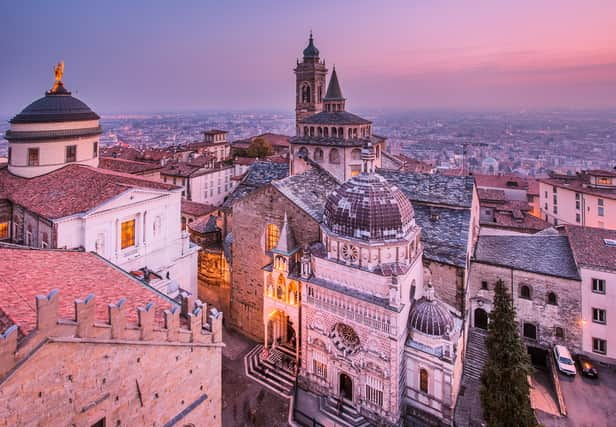

For many people, the Lombardian city of Bergamo may remain nothing more than a distant glimpse of walls and turrets rising up behind the runway of Orio al Serio airport. An intriguing notion, shrinking into the distance through a bus window as they are whisked away towards its more famous neighbour, the regional capital Milan. But this charming, compact city is well deserving of a stop off.
Bergamo was catapulted onto the global stage in early 2020, at the beginning of the Covid pandemic. Images of its streets lined with coffin-laden military trucks were beamed around the world - hit hard and early, it was one of the deadliest killing fields for the virus in the Western world. As you wander its picturesque streets today, sampling its many unique culinary treats and exploring its magnificent churches, it is hard to imagine the horrors the city endured then. It feels as safe as anywhere in the post-lockdown days.
Advertisement
Hide AdAdvertisement
Hide AdA city of two halves
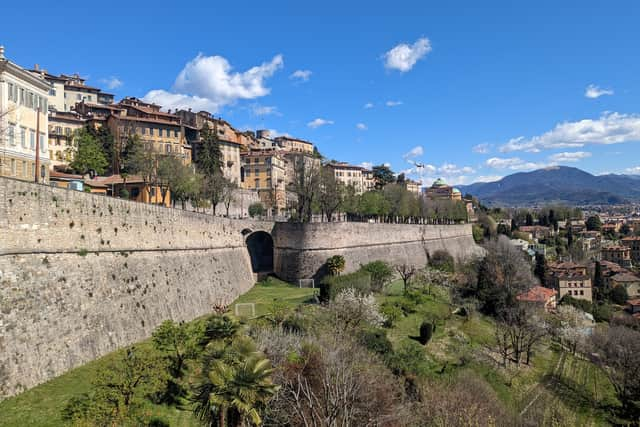

Bergamo is a city of two parts – a mediaeval walled core (the Città Alta, or upper city) perched on a series of hills above the more sprawling modern city and its suburbs (the Città Bassa, or lower city). Rising up behind both are the imposing snow-capped peaks of the Orobie Alps. The city is located 25 miles and a 45-minute train journey from Milan, and 19 miles from famed Lake Como, making it a great base for exploring the wider region. (Book train travel through Italiarail.com)
Bergamo lends itself well to a flying sojourn, and much can be packed into a short 24-hour period. With just one day to play with, the Città Alta was the focus of our trip but the Città Bassa, the locals loved to explain, has much to offer: they recommend catching a show at the Teatro Donizetti Opera house or climbing the Torre dei Caduti (Tower of the Fallen, honouring Bergamo’s war dead).
Bergamo is temperate and delightful from March through to June, but avoid visiting in July and August - the weather can be oppressively hot and the crowds can be overwhelming.
How to spend 24 hours in Bergamo
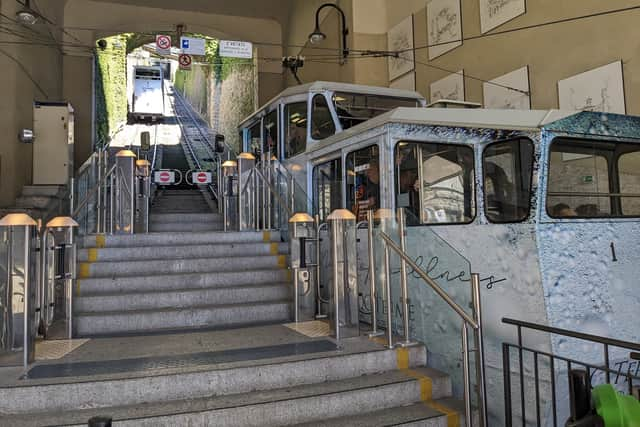

The nested levels of the Città Alta are connected by two antique funiculars (a cable railway which travels up steep slopes) built in the 1880s and 1910s. Begin the day by taking the Funicular Città Alta from the lower town up into the historic core. Try to get the seat at the front for unobstructed views of the suburbs and planes that surround Bergamo as the carriage climbs its way through the rooftops. Tickets can be purchased in person or through the Atb mobile app. The funiculars are part of the bus and tram network, with a €2.20 fare allowing unlimited transport within a 90 minute window.
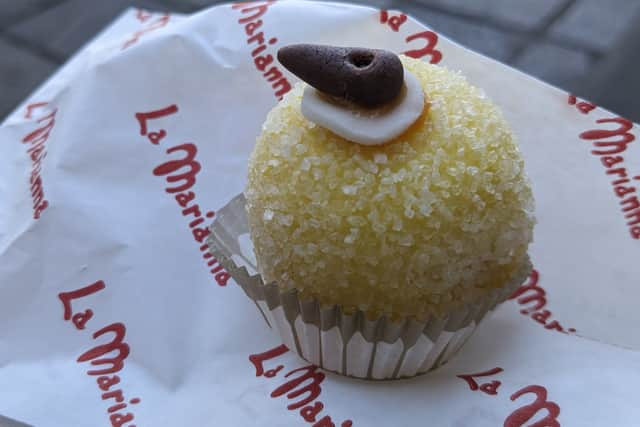

Once you emerge in the Città Alta at Piazza Mercato delle Scarpe, spend some time meandering its narrow cobbled streets. Pick yourself up a Polenta e Osei (polenta with birds) from one of the many bakeries and pasticcerias you will pass along the way. Polenta e Osei is the region’s signature cake, a yellow marzipan-covered sponge coated in sugar and topped with black bird decorations. You’ll find them winking from windows all over the city.
Advertisement
Hide AdAdvertisement
Hide Ad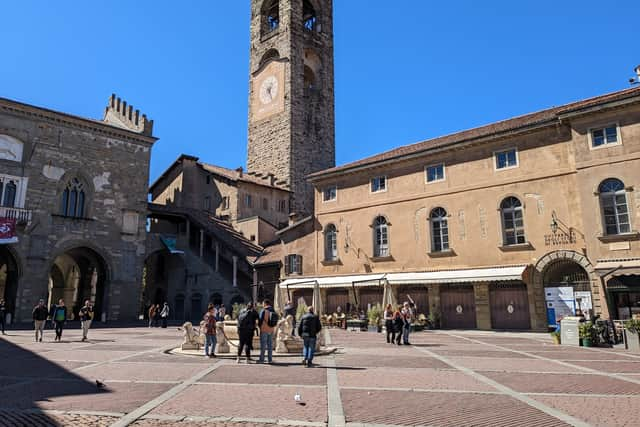

Head over to the Piazza Vecchia, the historic centre of the old city. Facing each other across the small square are the white marbled Palazzo Nuovo ('new palace') and the grey stone Palazzo della Ragione (‘old palace’). The latter is the oldest town hall in Italy at over 800 years old – look out for the meridian lines embedded in marble below it.
Marvel at medieval buildings
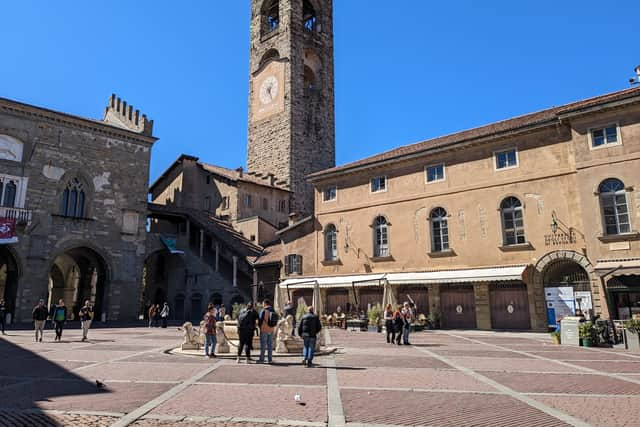

At the corner of the square stands the Campanone, the 53-metre tall civic tower, which is home to the largest bell in Lombardy. For €5 you can ascend the tower by stairs or in the glass lift (it’s closed on Mondays, like many other attractions in the city) for panoramic views.
Walk under the arches of the Palazzo della Ragione and you’ll find the smaller Piazza Duomo. Here, the Cattedrale di Sant'Alessandro Martire and Basilica di Santa Maria Maggiore are sandwiched tightly together across a small courtyard - the interiors of the latter are a highlight of the historic city centre.
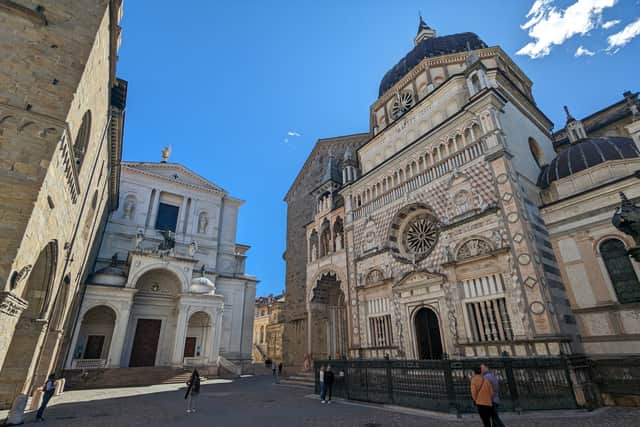

The Basilica di Santa Maria Maggiore's striking, mish-mashed exterior (adorned with colourful trompe-l'œil and striped patterns, it is unusually missing a main entrance, accessible only through side doors) gives way to an opulent baroque interior.
Advertisement
Hide AdAdvertisement
Hide AdPolenta, gelato and Negronis - an open-air picnic
After visiting the cathedral and basilica, return to the entrance of the Funicular Città Alta for a spot of lunch at Polentone, a fast food-style kiosk serving up the regional specialty of polenta. Opt for the ‘tris a scelta’ to try three sauces of your choice – the wild boar and the mixed local cheeses are a stand-out.
After lunch, to La Marianna, a traditional bar, gelateria and pasticceria where stracciatella gelato (a creamy milk ice cream with chocolate shavings) was invented back in 1961. After dessert enjoy a classic aperol spritz or Negroni in the outside courtyard.
A breath-taking view
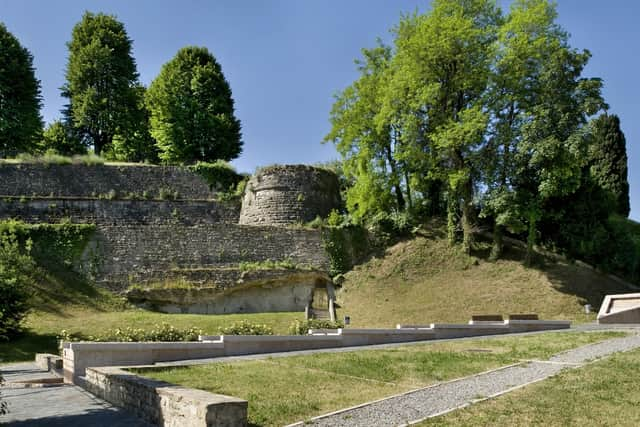

Head to the nearby San Vigilio Funicular and ascend to Bergamo’s highest point, the San Vigilio hill. An incredible panoramic viewpoint greets you as you exit the carriage. It's a short walk to the Castello Di San Vigilio, the ruins of an old stone castle, free to explore, and offering stunning views of the Alps that border Bergamo to the north. Stop for another aperitif at Baretto, at the top of the funicular, before making your descent.
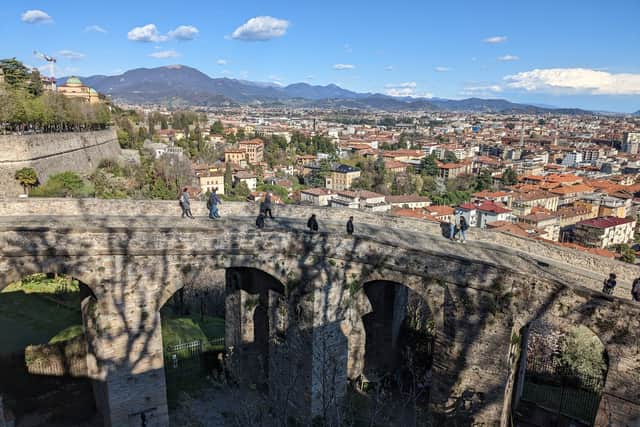

Now it’s time to explore the UNESCO-listed Venetian walls, built in the 16th century to fortify the then Republic of Venice. From the bottom of the funicular station head south down viale delle Mura to the parco di San Giovann, then head east following the wall as it hugs the Città Alta, drinking in the view of the vast, flat plains between Bergamo and Milan, whose slick skyscrapers can be seen protruding in the distance.
Advertisement
Hide AdAdvertisement
Hide Ad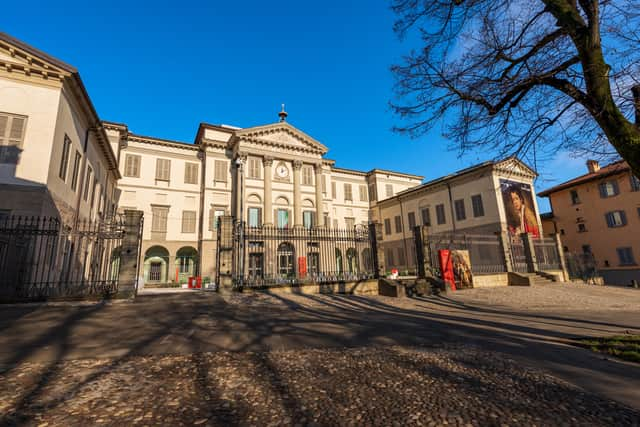

After a short walk you’ll reach the white marble of the Porta San Giacomo, considered to be the most impressive of the city gates. You can continue following the wall along its entire six kilometre perimeter – but first take a quick detour from the Porta San Giacomo to pop down into the lower city and to Accademia Carrara, a small but distinguished collectors’ gallery home to more than 600 works by masters of Italian painting including Botticelli, Raphael and Pisanello. Tickets are €10 after 6:30pm on the last Friday of the month.
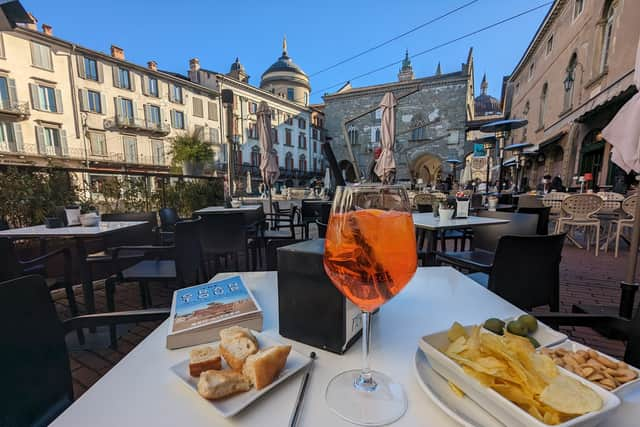

Before dinner in Italy comes aperitivo, and Piazza Vecchia is a perfect stop to return to to grab an al-fresco drink and accompanying buffet of nibbles. Bar Flora at the north-west corner offers a perfect view across the square, taking in the sun-dabbled roof of the duomo as the day draws to a close.


This region of Italy might be more famous for its polenta, but that doesn’t mean pasta is off the menu. A trip to the city should not be complete without tasting its eponymous pasta dish Casoncelli Bergamasch – ravioli cooked in a parmesan, sage and butter sauce with pancetta. We enjoyed a very reasonably priced (€12) and delicious plate at laid back bar Birreria di Città Alta.
Finish the night off by watching the sunset over the Venetian walls, grabbing a Guinness in The Tucans Irish pub (because we strongly believe Irish pubs abroad are a must-visit) [editor: some of us firmly do not, but have fun, Harriet] near the funicular station, and listening to the Campanone bell as it tolls 100 times at 10pm.
Getting there: Fly to either Milan or Bergamo's Orio al Serio International Airport. From Bergamo city there are regular trains to Milan, Lecco and Brescia then on to Verona and Venice.
Comment Guidelines
National World encourages reader discussion on our stories. User feedback, insights and back-and-forth exchanges add a rich layer of context to reporting. Please review our Community Guidelines before commenting.
